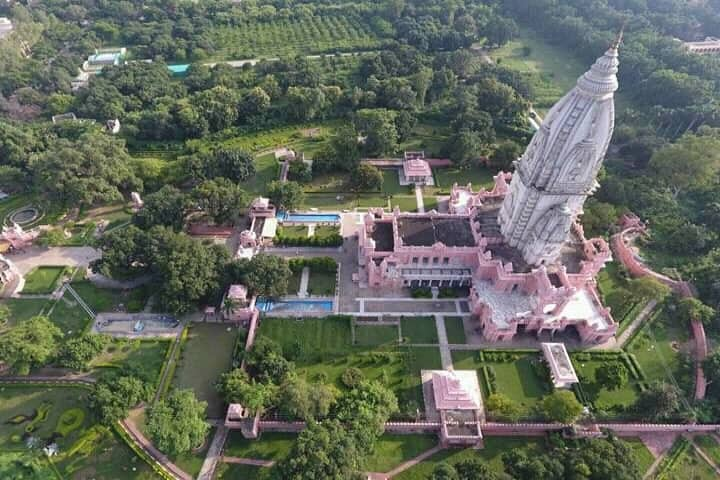
Zoology Course Details - Fees, Subjects, Syllabus, Duration, Eligibility, Career Scope
Degrees offered: M.Sc., B.Sc.(Hons), B.Sc., Ph.D, M.Phil.
What is Zoology
Zoology is a branch of biology that studies the animals and their entire gamut, which includes evolution, classifications, physiology, biochemistry, genetics, and habits. The subject covers environmental effects on animal behaviours, their interaction between humans and other animals, animal remains, animal behaviour, and conservation. Candidates with zoology courses find opportunities in government departments, environmental agencies, universities, colleges, biotechnological, pharmaceutical, and ecological fields.
The zoology course is offered at the undergraduate and postgraduate levels. Candidates can choose the specialisation from the structure, physiology, ethology, biogeography, marine biology, and other branches of the zoology. Candidates can go for a doctorate and postdoctoral programme after the post-graduation in zoology and work as a lecturer or researcher.
The article provides more details about the zoology courses, which covers the details about the courses, subjects, specialisations, syllabus, scope, opportunities, and details about the recruiters.
Zoology Highlights:
Zoology course level | Graduate and postgraduate degree |
Zoology course admission process | Based on the entrance exam/merit-based |
Zoology courses | B.Sc in Zoology M.Sc in Zoology Ph.D in Zoology |
Minimum qualification for the B.Sc, M.Sc and Ph.D in Zoology. | For B.Sc: Candidates must have passed in class 12 with science stream. They must have studied Physics, Chemistry, and Biology in Class 12.
For M.Sc: Candidates must have passed BSc/BSc (Hons) in Zoology. Candidates who have passed allied medical sciences/biosciences/life sciences are also eligible to apply.
For Ph.D: Candidates must have scored 55 per cent in M.Sc. (50 per cent for SC/ST candidates). |
Zoology course - Annual course fee | INR 10,000 to INR 50,000 per annum |
Average salary offered | Up to Rs. 8 LPA, depending on the experience |
Career prospects | Animal care specialist, conservationist, wildlife biologist, zoo curator, wildlife educator, zoology faculty, zoology researcher and lab technicians. |
Top recruiters | Government departments, environmental agencies, universities, colleges, biotechnological, pharmaceutical, and ecological fields. |
Required skills |
|
Eligibility Criteria (UG & PG) of Zoology
To get admission to zoology courses, candidates have to follow the certain eligibility criteria. The detailed admission process for the undergraduate and postgraduate courses are given below:
Eligibility Criteria for B.Sc:
Candidates must have passed class 12 in science stream.
They must have studied Physics, Chemistry, and Biology in class 12.
Eligibility Criteria for M.Sc:
Candidates must have passed B.Sc in zoology from a recognised university and college.
Candidates who have passed allied medical sciences/biosciences/life sciences are also eligible to apply.
They are required to have a minimum of 50 per cent at B.Sc.
M.Sc Entrance Exams:
M.Sc course is offered by various universities and colleges in India. The admission process of these colleges and universities are based on merit as well as the entrance exam conducted by the respective colleges or national-level body. To appear for the entrance exam, candidates need to follow the following procedure:
Eligible candidates are required to submit their application online at the college or university’s website along with scanned copies of the required documents. They have to pay the application fee online.
They can also download the filled in application form and send it to the concerned department of the university/college along with required documents and receipt of application fee payment.
Candidates are shortlisted based on the merit of the qualifying exam.
Some of the universities/colleges conduct the entrance test.
Candidates have to appear for the entrance test conducted by the university or college.
Based on the entrance test result, candidates will be invited for the counselling/interview.
Selected candidates have to report to the college/university/institute and complete the admission process, which includes, document verification and fee payment.
Eligibility for Ph.D:
Candidates must have scored 55 per cent in M.Sc. (50 per cent for SC/ST candidates).
Ph.D Entrance Exam:
Ph.D in zoology is offered by various universities and colleges in India. The admission process of these colleges and universities are based on merit as well as the entrance exam conducted by the respective colleges or national-level body. To appear for the entrance exam, candidates need to follow the following procedure:
Candidates need to apply online at the official website of the university.
Admission to Ph.D. is based on the rank secured in the entrance examination conducted by the Research Department of the respective colleges and institutes.
Candidates with UGC-CSIR-NET/JRF, UGC-NET/JRF, SLET, GATE are exempted from the Entrance Test.
The candidates who have qualified in the entrance test will be called for interview/viva-voce, conducted by the Department Research Committee.
The general merit list for the M.Phil./Ph.D. programme is prepared by the DRC on the basis of performance of the candidate in the entrance test, the interview/viva-voce.
Interview judges the suitability of the applicant on the basis of applicant’s research aptitude, knowledge of the subject, a clear understanding of the proposed research problem, the suitability of proposed research methodology, research facilities available and availability of the research supervisor in the proposed research area etc.
Shortlisted candidates need to report to the respective centres of the University and complete the admission process which includes document verification and fee payment.
Zoology Specialisations:
Ethology: Ethology is one of the specializations of zoology. This is a scientific and objective study of animal behaviour under natural conditions. Ethologists study the evolution of behaviour and the understanding of behaviour in terms of the theory of natural selection.
Biogeography: Biogeography is the specialisations of zoology. It studies the spatial distribution of organisms on the earth and focuses on topics like plate tectonics, climate change, dispersal and migration, and cladistics.
Physiology: This specialisation studies the mechanical, physical, and biochemical processes of living organisms by attempting to understand how all of the structures function as a whole.
Structure: The cell biology or structure studies the structural and physiological properties of cells. This includes cell behaviour, interactions, and environment. This is done on both the microscopic and molecular levels.
Evolution: Evolutionary research is concerned with the origin and descent of species and their change over time. It generally involves scientists who are trained in particular organisms such as mammalogy, ornithology, herpetology, or entomology.
Scope of Zoology in India and Abroad
Candidates with zoology courses have opportunities in government departments, environmental agencies, universities and colleges. They also have opportunities in biotechnological and pharmaceutical fields. While doing higher studies, candidates can choose the specialisation from the structure, physiology, ethology, biogeography, marine biology, and other branches of the zoology and can pursue the research in the same field. As per their specialisation, they will have opportunities in the field of conservationist, wildlife biologist, zoo curator, wildlife educator, zoology faculty, zoology researcher and lab technicians.
Opportunity in higher studies: Candidates can go for a doctorate and postdoctoral programme after the post graduation in zoology and work as a lecturer or researcher.
Course Fees Zoology
| Minimum Fees | Maximum Fees | |||
|---|---|---|---|---|
| Private | Government | Private | Government | |
| UG | ||||
| PG | ||||
| DOCTORAL | ||||
| DIPLOMA | ||||
Course Subjects
B.Sc syllabus has been developed to provide in-depth knowledge about biodiversity, their development and interaction with the environment. It covers the study of physiology, endocrinology, cell biology and molecular biology. The course also provides in-depth knowledge of the subject on instrumentation and techniques including biostatistics, biotechnology and bioinformatics. The detailed outline of the B.Sc syllabus is mentioned below:
Semester-I
Theory Papers:
Paper I: Non-chordate diversity and Systematics
Paper-II: Practical based on Paper I
Semester-II
Theory Papers:
Paper I: Biochemistry
Paper-II: Practical based on Paper I
Semester-III
Theory Papers:
Paper I: Chordate diversity and Comparative Anatomy
Paper-II: Practical based on Paper I
Paper III: Bioinstrumentation & Biostatistics
Paper IV: Practical based on Paper III
Semester-IV
Paper I: Biotechniques, Biostatistics and Ethology
Paper-II: Practical based on Paper I
Paper III: Developmental Biology
Paper IV: Practical based on Paper III
Semester-V
Paper I: Genetics and Evolution
Paper-II: Practical based on Paper I
Paper III: Animal Physiology
Paper IV: Practical based on Paper III
Paper V: Endocrinology
Paper VI: Practical based on Paper V
Paper VII: Molecular Biology and Immunology
Paper VIII: Practical based on Paper VIII
Semester -VI
Paper I: Parasitology and Ethology
Paper-II: Practical based on Paper I
Paper III: Molecular Biology and Immunology
Paper IV: Practical based on Paper III
Paper V: Biotechnology and Bioinformatics
Paper VI: Practical based on Paper V and project work
Paper VII: Economic Zoology
Paper VIII: Practical based on Paper VIII
Syllabus for M.Sc Zoology:
M. Sc. syllabus has been developed to carry out research in the areas of endocrinology, physiology, cell and tissue culture, reproductive biology, and neurobiology in the branches of entomology, fish and fisheries, animal physiology and of mammalian reproductive physiology. The detailed outline of the M.Sc syllabus is mentioned below:
Semester-I
Theory Papers:
Paper I: Structure and Function of Invertebrates.
Paper-II: General Physiology.
Paper III: Cell Biology and Genetics.
Paper IV: Advance Reproductive Biology
Seminar-I, Practical: I, Practical II
Semester-II
Theory Papers:
Paper V: Structure and Function of Vertebrates
Paper VI: Comparative Endocrinology
Paper VII: Molecular Biology and Biotechnology
Paper VIII: Advance Developmental Biology
Seminar-II, Practical: III, Practical: IV
Semester-III
Theory Papers:
Paper IX: Parasitology
Paper X: Immunology
Paper XI: Special Group paper-I (Entomology/Fish and Fisheries Animal Physiology/MRP)
Paper XII: Special Group Paper-II (Entomology/Fish and Fisheries Animal Physiology/MRP)
Seminar-III, Practical: V, Practical: VI
Semester-IV
Paper XIII: Biotechniques, Biostatistics and Ethology
Paper XIV: Toxicology and Bioinformatics
Paper XV: Special Group Paper-III (Entomology/Fish and Fisheries Animal Physiology/MRP)
Paper XVI: Special Group paper-IV (Entomology/Fish and Fisheries Animal Physiology/MRP)
Seminar-IV, Practical: VII and Project work
Careers in Zoology
Candidates who have completed the zoology courses in B.Sc, M.Sc, and Ph.D level have various job opportunities in the public and private sectors. Depending on their degree level, interest, and work experience they can opt for the following opportunities.
Bio-Technician/biological technician: A bio technician, or biological technician, works with biologists and other scientists and assists them in solving scientific problems dealing with living organisms. The job role involves performing a test on blood or other biological substances. It also includes molecular diagnostic testing, pathology testing, and many other types of medical testing.
Animal Care specialist: The job involves taking care of pets and other domesticated animals. Training animals, rescue animals, zoo keeping are other roles related to this profile.
Wildlife and Conservationist: Wildlife and conservationists study all aspects of animal life and relate it to the management and conservation of natural resources. A conservationist is a person who advocates or acts for the protection and preservation of the environment and wildlife. The conservationist groups keep an eye on the environment activities and guide the government and corporate for the right actions towards the protection of the environment. The groups create pressure on the government for changing the wrong policies or creating new ones for the protection of the environment.
Teaching and research: There is a good scope in academics after studying M.Sc in Zoology. For the teaching and research at the university level, candidates are shortlisted based on both academic record and performance in a relevant nation-wide screening test, like UGC (NET/JRF), CSIR(NET/JRF), ICAR (JRF/SRF), SLET. As per the score in the exams candidates can go for a doctorate study in zoology. They can pursue research in structure, physiology, ethology, biogeography, marine biology, and other branches of zoology.
Zoologists and wildlife biologists: Zoologists and wildlife biologists study animals and other wildlife and their interaction with ecosystems. After pursuing the Ph.D. candidates can join the research and become a zoologist and wildlife biologists.
Job Profiles and Top Recruiters
Candidates with zoology courses have opportunities in government departments, environmental agencies, universities and colleges. They also have opportunities in biotechnological and pharmaceutical fields.
Average Salary
The government, non-government, and corporate sector offers jobs to people who have successfully completed the UG and PG zoology courses. The salary offered varies from sector to sector depending upon the skills, qualifications, experience, and other specific demands of the recruiters. As freshers or at the entry-level the average salary package offered varies from Rs 2 to Rs.3 LPA. People with a decent number of years of experience can earn up to a salary package of Rs.6 to Rs.10 LPA. The detailed salary offers as per the experience is given below:
Experience level | Years of Experience | Salary Starting from | Up to |
Entry-level | 0-5 years | INR 2 LPA | INR 3 LPA |
Mid Level | 5-10 years | INR 3 LPA | INR 6 LPA |
Top-level | 10-20 year | INR 6 LPA | INR 10 LPA |
Popular Zoology Entrance Exams in India
Frequently Asked Questions (FAQs)
Question: How much is the fee for the Master of Science (M.Sc) in Zoology course at Sri Agrasen Kanya PG College Varanasi?
Answer :
The Sri Agrasen Kanya PG College Varanasi fee for the M.Sc in Zoology course is Rs 50.00 K.
Questions related to Zoology
Im preparing for msc zoology entrance examination please guide me also send me previous or expected questions... My entrance exam will be next month... Amu Aligarh
Can a bsc Zoology Hons student do msc in marine biology?
Yes, a B.Sc. Zoology (Hons.) student can pursue an M.Sc. in Marine Biology. Since zoology covers various aspects of animal biology, including marine life, it provides a strong foundation for marine biology studies. However, eligibility criteria vary by university. Some institutions may require additional coursework in marine sciences, while others may admit students based on entrance exams or interviews.
If you're interested, check the admission requirements of universities offering M.Sc. Marine Biology, such as IISc, CUSAT, Pondicherry University, and Annamalai University in Indi
a.
Bsc in zoology college without cuet
Hi aspirant,
Here are various ways you can gain admission without taking the CUET :
1 . Private Colleges : Many renowned private colleges in India offer B.Sc. Zoology is based on their criteria.
2 . State Universities : Many state universities and their affiliated colleges do not require the CUET for admission.
3. Merit-Based Admissions : You can also apply to colleges based on your marks from the 12th standard.
I have compiled a list of top colleges in India for B.Sc. Zoology, filtered based on their fees and placement records. You can check here .
Bsc in zoology college without cuet
Hi aspirant,
Here are various ways you can gain admission without taking the CUET :
1 . Private Colleges : Many renowned private colleges in India offer B.Sc. Zoology is based on their criteria.
2 . State Universities : Many state universities and their affiliated colleges do not require the CUET for admission.
3. Merit-Based Admissions : You can also apply to colleges based on your marks from the 12th standard.
I have compiled a list of top colleges in India for B.Sc. Zoology, filtered based on their fees and placement records. You can check here .
Can I get Zoology mind maps and diagrams from class 11 and 12
Hii There,
Mind maps and diagrams can help make important concepts easier to understand for Zoology classes 11 and 12. A mind map for animal classification and a diagram illustrating the hierarchy from Kingdom to Species, as well as tissue structures like xylem and phloem, can be made in Class 11. Focus on the digestive system in Class 12 by creating a labeled diagram of the human digestive tract and a mind map that lists the organs and enzymes. In genetics, a Punnett square diagram for monohybrid crossings can be used in conjunction with a mind map on Mendelian inheritance. Tell me if you require any particular diagrams!
For more information, please visit:
https://medicine.careers360.com/articles/important-diagrams-for-neet-biology
I hope this answers your question.
Thanks










 Answer later
Answer later









